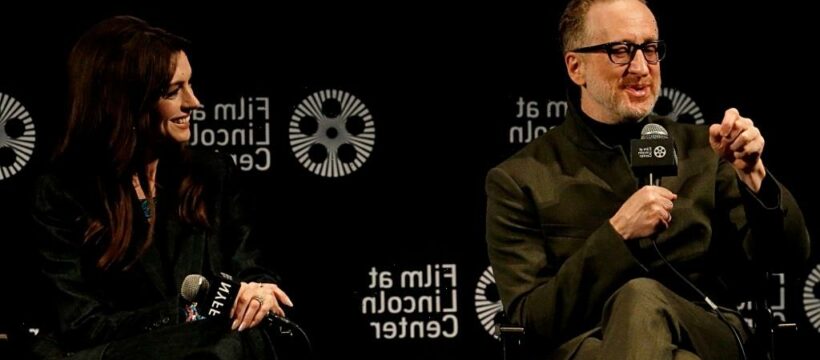James Gray’s “Armageddon Time” explores the complexity of the American Dream — the idea that every citizen should have an equal opportunity to achieve success through hard work and initiative — from the perspective of a Jewish family in 1980.
“In some ways,” according to star Anne Hathaway, the status of this idealistic pursuit has remained “very similar” over the years. At the same time, the actor pinpointed a notable societal change that she hopes continues to persist.
“If there’s one thing that I really do hope that we keep coming to a different place about because it keeps coming up at such an impossibly high cost, is that we’re more willing to see ourselves as a part of the problem,” Hathaway told Variety on Wednesday night at the “Armaggedon Time” New York Film Festival premiere. “Not in a fragile way, but in a way that we can affect change by changing ourselves.”
For the film’s protagonist, aspiring 11-year-old artist Paul Graff (Banks Repeta), systemic oppression becomes the backdrop of his primary conflict. After befriending the only Black student in his class, Johnny (Jaylin Webb), Paul becomes conscious of his racial and socioeconomic class advantages — and how they could ultimately burden the life of those without such protections.
Johnny, who wishes to become an astronaut one day, is seen feeling constantly belittled by his sixth-grade teacher (Andrew Polk) and society at large. At one point in the film, an older Black boy approaches Johnny on the graffiti-filled New York City subway and stamps out the idea of a Black man traveling into space.
“John had a dream: he saw a man go to space, so he wants to do the exact same thing,” Webb told Variety. “But, of course, he was denied that. It was almost like he was ridiculed for being a dreamer.”
The 16-year-old actor, who also has a supporting role in Chinonye Chukwu’s “Till,” said he talked to a lot of his family members while preparing for this film to truly grasp racial oppression in the post-segregation era.
“Fortunately, I’ve never experienced what Johnny experienced, so just talking to them and asking them to help guide me was really helpful,” Webb said. “I never really knew how bad racism was back in the ’80s, so certain scenes in the movie really spoke to me.”
On the red carpet, Polk reflected on his time growing up in Berkeley, Calif., and how Black students were integrated into public school classrooms.
“I certainly remember that there was little attention paid to how it’d be done, just that it would be done,” Polk told Variety. “You could see people, slowly over the course of your education, just divide. Some people had more support than others, as portrayed in this movie.”
He continued, “I was watching some of my friends who were in a different economic place than I was, maybe just being left off because there was no support system to help catch them. So I think, sadly, that still exists. That really needs to be addressed, and I hope this movie helps people uncover that.”
Polk concluded that “the point of the movie is that there’s an American Dream, but not for everybody. If we really want to include people, we have to look harder at the people that are being left out.”
Focus Features will release “Armageddon Time” in select theaters on Oct. 28, with a wide release scheduled for Nov. 4.
Read More About:
Source: Read Full Article
